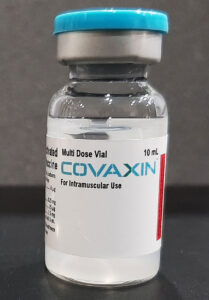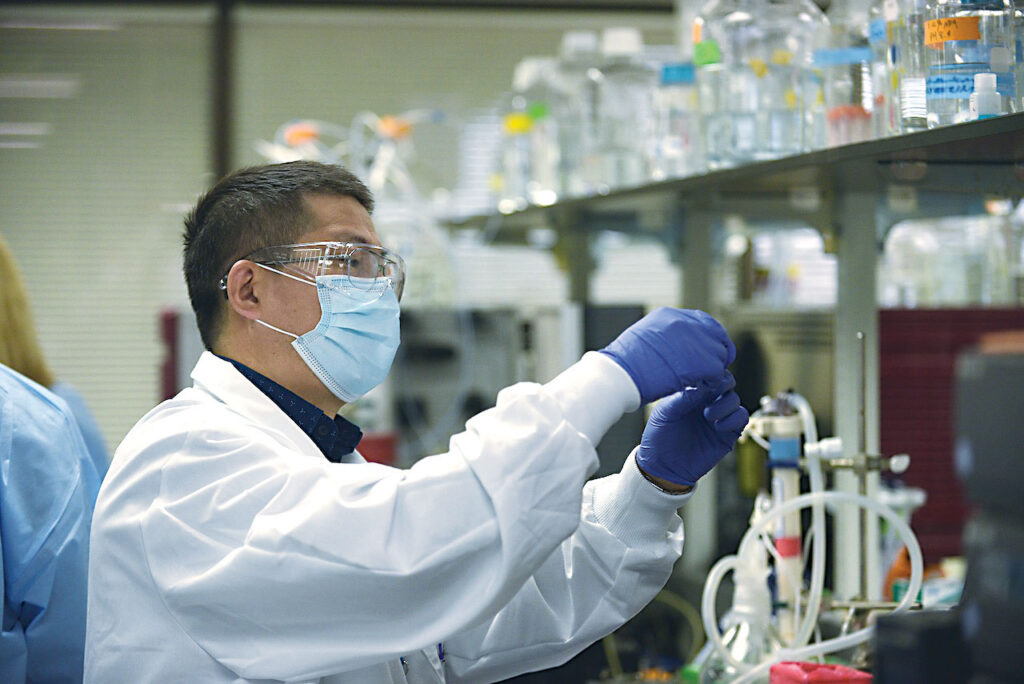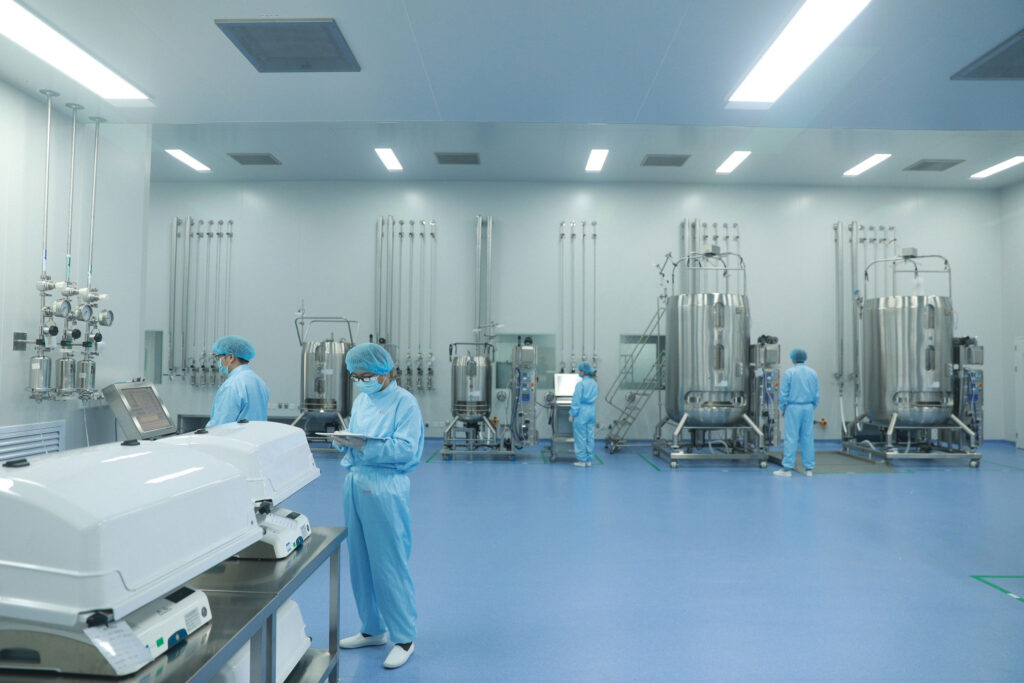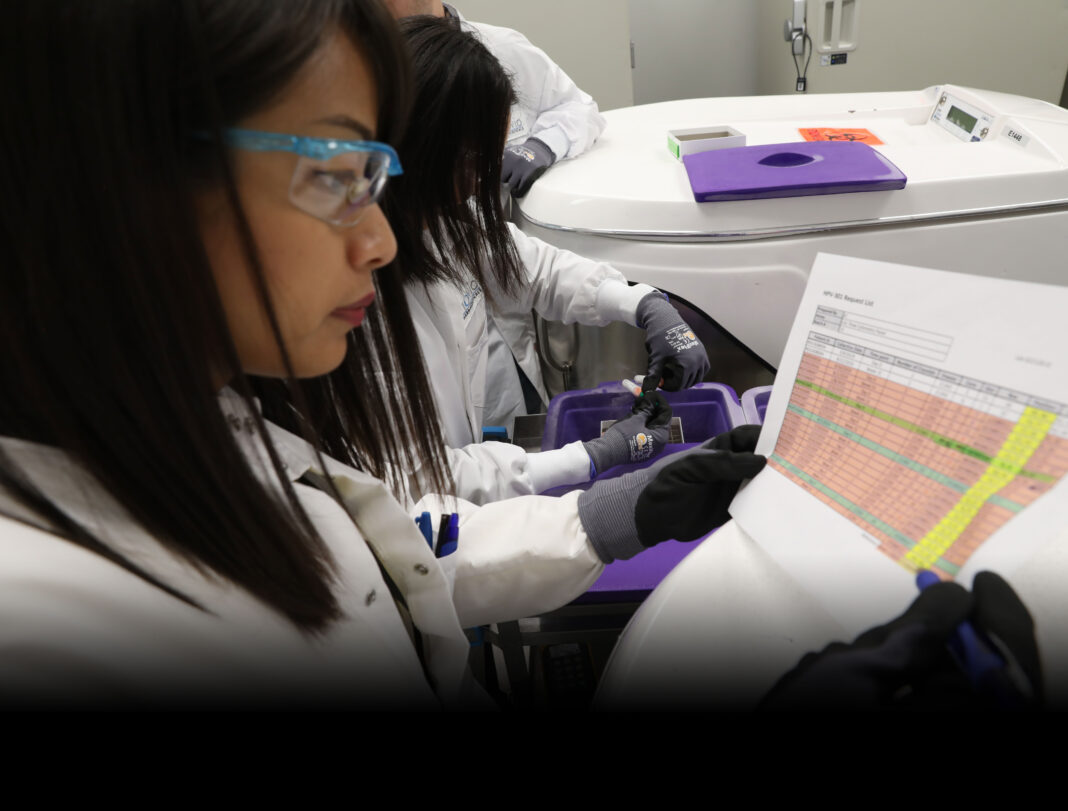Since the start of the COVID-19 pandemic, the response from public health agencies, regulators, researchers, and industry has been dominated by the development of vaccines. As of October 14, McGill University’s McGill COVID19 Vaccine Tracker listed 153 vaccines in clinical development, of which 23 had been approved or authorized for emergency use in at least one country.
In the United States, the FDA has approved one COVID-19 vaccine (Pfizer/BioNTech’s Comirnaty) and authorized for emergency use two others (Moderna’s Moderna COVID-19 Vaccine and Johnson & Johnson’s Janssen COVID-19 Vaccine). Beyond the United States, most approvals and authorizations have been granted to those vaccines and others developed by AstraZeneca/University of Oxford (122 countries), Sinopharm (65), Sinovac Biotech (40), Russia’s Gamaleya Research Institute (16), and CanSino Biologics (9).
Six COVID-19 vaccines that have shown positive data and/or regulatory progress in recent months are highlighted in this article.
Covaxin

Ocugen (Malvern, PA) is participating in regulatory reviews with the FDA and Health Canada for Covaxin, the vaccine the company is co-developing in both countries with Bharat Biotech (Hyderabad, India). In a preprint posted in July, researchers from Bharat and partners showed Covaxin to have 77.8% efficacy in mild, moderate, and severe COVID-19 disease; 93.4% against severe COVID-19 disease alone; and 65.2% against the Delta variant, in a trial that enrolled 25,798 participants aged 18–98 in India.
“Covaxin is the only product with controlled clinical trial efficacy data on the Delta variant,” Shankar Musunuri, PhD, MBA, Ocugen chairman, CEO, and co-founder, told GEN. The point here is that the data for Covaxin is not limited to neutralization data extrapolated from laboratory studies. (Pfizer/BioNTech, Moderna, and other developers have launched trials of reformulated vaccine candidates designed to generate clinical efficacy data vs. Delta.)
Covaxin is a whole-virion, inactivated COVID-19 vaccine formulated with a toll-like receptor 7/8 agonist molecule (IMDG) and Alhydroxiquim-II, an NIH-funded adjuvant discovered by ViroVax. Covaxin has received emergency authorization in 16 countries including India, with emergency applications pending in more than 60 additional countries.

Chairman of the Board, CEO, and Co-Founder, Ocugen
Ocugen is seeking FDA guidance on pursuing a biologics license application. “As soon as we reach an agreement on how to bridge some additional trials, we’ll do that and work closely with the FDA,” Musunuri said.
Bharat Biotech developed Covaxin with the Indian Council of Medical Research, National Institute of Virology.
GBP510
SK Bioscience (Seongnam-si, South Korea) and GlaxoSmithKline (GSK; Brentford, United Kingdom) launched a Phase III trial of GBP510 in August. For this trial, the plan is to administer GBP510 with GSK’s pandemic adjuvant to more than 4,000 participants.
“Recruitment is progressing well,” a GSK spokesperson told GEN. “Results are expected in the first half of 2022, after which, subject to regulatory approval, we hope to supply the vaccine at scale worldwide through the COVID-19 Vaccines Global Access (COVAX) Facility.”
Earlier this year, SK and GSK reported positive interim Phase I/II results showing a 100% seroconversion rate, with all participants who received the adjuvanted vaccine candidate developing strong neutralizing antibody responses. Neutralizing antibody titers were between five and eight times higher than sera from people who had recovered from COVID-19.
GBP510 combined with GSK’s adjuvant is a self-assembled nanoparticle vaccine candidate targeting the receptor binding domain of the SARS-CoV-2 spike protein. SK is developing the antigen with the Institute for Protein Design at the University of Washington with support from the Bill and Melinda Gates Foundation and the Coalition for Epidemic Preparedness Initiative (CEPI) as part of the Wave 2 vaccine investment project to develop more accessible and affordable COVID-19 vaccines.
INO-4800
Inovio Pharmaceuticals is preparing to launch the global Phase III segment of its Phase II/III INNOVATE trial (NCT04642638) evaluating INO-4800, a DNA vaccine targeting the major surface antigen spike protein of SARS-CoV-2. Interim efficacy results are expected in 2022.

Senior Vice President, R&D
Inovio Pharmaceuticals
Inovio has reported complete maintenance of both CD4+ and CD8+ T-cell responses against all variants of concern tested, including Delta. “The broad T-cell responses that we are generating with 4800 give us confidence that we can protect against the known variants—Alpha, Beta, Gamma, and Delta—but also potentially the as-yet-unknown future variants,” Kate E. Broderick, PhD, senior vice president, R&D, Inovio, told GEN.
INNOVATE will be conducted with Advaccine Biopharmaceuticals Suzhou, which holds exclusive rights to develop, manufacture, and commercialize INO-4800 within Greater China. INNOVATE is set to recruit participants across Latin America, Asia, and Africa (numbers will vary depending on regional infection rate)—though not the United States, where the trial remains on partial clinical hold because the FDA has raised questions about the Cellectra 2000 device used for delivering INO-4800.
“We will be gathering data and look forward to working with the FDA to get off the hold,” Broderick added. Afterward, Inovio plans to file a biologics license application using efficacy from the INNOVATE trial.
NVX-CoV2373
Novavax (Gathersburg, MD) told GEN it expected to seek an emergency use authorization from the FDA for NVX-CoV2373 during the fourth quarter. Outside the United States, Novavax and partner Serum Institute of India have submitted their first emergency use filings in India, Indonesia, and the Philippines, as well as an application for emergency use listing with the World Health Organization. Novavax added that it was working to complete ongoing rolling submissions to the World Health Organization and regulators in Europe, the United Kingdom, Canada, Australia, and New Zealand.
“Our first doses are committed to the developing world, and our largest customer is the COVAX Facility, with a cumulative 1.1 billion doses committed in partnership with the Serum Institute of India,” a Novavax spokesperson said.

More recently, Novavax launched a clinical study assessing a combination vaccine (NVX-CoV2373 and NanoFlu) against COVID-19 and influenza. “The combination vaccine positions Novavax to address a future need to annually immunize against both SARS-CoV-2 and influenza virus, potentially in advance of the winter transmission season,” Novavax noted. “It will not impact the ongoing and future standalone studies of our COVID-19 and NanoFlu vaccines.”

SCB-2019 (CpG 1018/Alum)
Clover Biopharmaceuticals (Chengdu, China) and Dynavax Technologies (Emeryville, CA) reported in September that their protein-based COVID-19 vaccine candidate SCB-2019 (CpG 1018/Alum), in combination with Dynavax’s CpG 1018 adjuvant, met the primary and secondary efficacy endpoints in the global Phase II/III SPECTRA trial (NCT04672395), a trial that enrolled more than 30,000 participants in the Philippines, Brazil, Colombia, South Africa, and Belgium.
SCB-2019 (CpG 1018/Alum) showed 100% efficacy against severe COVID-19 and hospitalizations, and 84% efficacy against moderate-to-severe COVID-19 caused by any strain of SARS-CoV-2; all strains in the study were of variants. Clover also reported 79% overall efficacy against COVID-19 of any severity caused by Delta, 92% against Gamma, and 59% against Mu.

“Based on our pioneering data, we believe that SCB-2019 (CpG 1018/Alum) could be utilized as an important tool to combat this pandemic,” stated Joshua Liang, CEO, Clover. “We remain dedicated to expediting the availability and equitable access of our COVID-19 vaccine candidate for global distribution.”
The vaccine combines SCB-2019 antigen, a stabilized trimeric form of the S-protein (S-Trimer) based on the original strain of the SARS-CoV-2 virus, with CpG 1018 and alum.
VBI-2902
VBI Vaccines (Cambridge, MA) said in June that its enveloped virus-like particle vaccine VBI-2902 showed proof of concept by generating initial positive data in the Phase Ia portion of a Phase I/II trial (NCT04773665). Data showed that a 5 µg dose expressing an optimized form of the SARS-CoV-2 spike antigen and adjuvanted with aluminum phosphate induced neutralization titers in 100% of participants, with 4.3 times the geometric mean titer (GMT) compared to convalescent sera.

President and CEO, VBI Vaccines
After two doses, VBI-2902 induced antibody binding titers in 100% of participants, with a geometric mean titer of 4,047 units/mL, 5.0 times the geometric mean titer of the convalescent serum panel.
“We achieved a human proof of concept at a very low dose using simply alum, which has been in tens if not hundreds of millions of people,” Jeff Baxter, VBI’s president and CEO, told GEN.
“A two-dose regimen makes sense,” added David E. Anderson, PhD, VBI’s co-founder and chief scientific officer. “In terms of the 5 µg dose, we were very pleased with the kind of potency we saw. We are encouraged by the validating data seen to date from VBI-2902.”

Chief Scientific Officer, VBI Vaccines
VBI-2902 is one of three enveloped virus-like particle vaccine candidates that VBI Vaccines is developing. In September, the company began a clinical study of VBI-2905 as a two-dose course and as a single booster dose against variants of concern including Beta and Delta. “Our biggest concern is understanding the extent to which the VBI-2905 booster can really give us protective immunity across the landscape of variants that are currently circulating,” Anderson noted.
During the first half of 2022, VBI Vaccines expects to launch its first clinical study of its trivalent pancoronavirus vaccine candidate VBI-2901, expressing the SARS-CoV-2, SARS-CoV, and MERS-CoV spike proteins.

